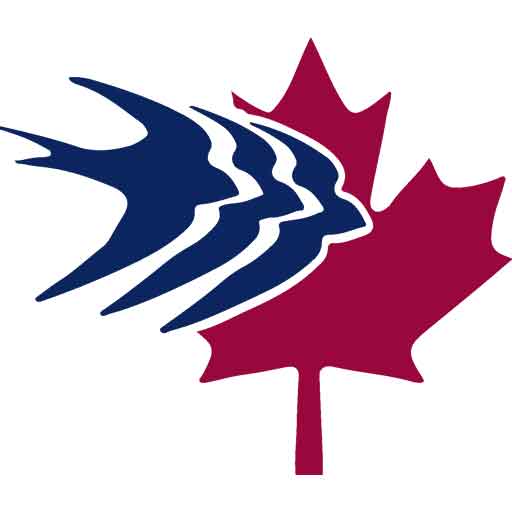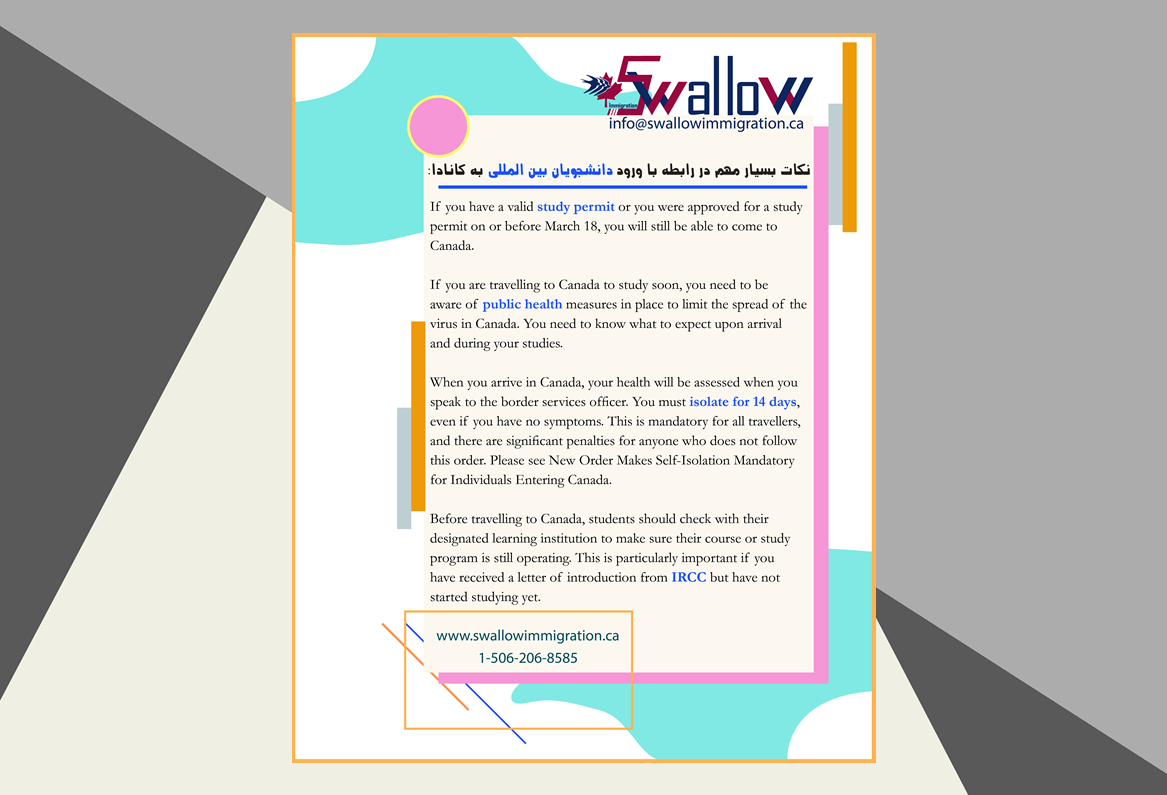نکات بسیار مهم در رابطه با ورود دانشجویان بین المللی به کانادا:
If you have a valid study permit or you were approved for a study permit on or before March 18, you will still be able to come to Canada.
If you are travelling to Canada to study soon, you need to be aware of public health measures in place to limit the spread of the virus in Canada. You need to know what to expect upon arrival and during your studies.
When you arrive in Canada, your health will be assessed when you speak to the border services officer. You must isolate for 14 days, even if you have no symptoms. This is mandatory for all travellers, and there are significant penalties for anyone who does not follow this order. Please see New Order Makes Self-Isolation Mandatory for Individuals Entering Canada.
Before travelling to Canada, students should check with their designated learning institution to make sure their course or study program is still operating. This is particularly important if you have received a letter of introduction from IRCC but have not started studying yet.
Before and during your trip,
- avoid spending time in large crowds or crowded areas
- avoid contact with sick people, especially if they have a fever, cough, or difficulty breathing
- be aware of the local situation and follow local public health advice
- be sure to monitor your health, and if you become sick before or during your trip, avoid contact with others except to see a health care professional
You must have a plan for how you will self-isolate for 14 days when you get to Canada and how you will obtain medical care if you become sick. While in self-isolation, you will be unable to leave where you are staying for any purpose. If you do not have a plan for self-isolation, including how you will buy groceries and access other essential services, please delay your travel until you have made one.
You will need to pass a health check before you’re allowed to board your flight. Anyone who shows symptoms of COVID-19 will not be allowed to travel to Canada. Do not travel to Canada if you feel sick. If you are sick, delay your travel plans until you are feeling well.
When you get to Canada,
- If you develop symptoms during your flight to Canada, tell a border services officer when you arrive in Canada. This is required under the Quarantine Act (a Canadian law). If you don’t, you could be charged with a crime.
- If you do not have symptoms but believe you were exposed to someone who was sick with COVID-19, under the Quarantine Act, you must report this to a border services officer when you get to Canada. The border services officer will give you instructions to follow.
- If you develop a fever, cough or difficulty breathing within 14 days,
- continue to isolate yourself from others
- call the public health authorityin the province or territory you are in to tell them about your symptoms and travel history
- They will give advice on what you should do.
While you are studying in Canada,
- Keep monitoring your health for fever, cough or difficulty breathing. If you get sick, avoid contact with others and contact your local public health authority.
- If the self-isolation requirements are still in effect for the beginning of your learning program, you may have courses online. This will not affect your in-class requirements for applying for a post-graduation work permit in the future.
Read the latest travel advice from the Government of Canada on the coronavirus disease (COVID-19).





